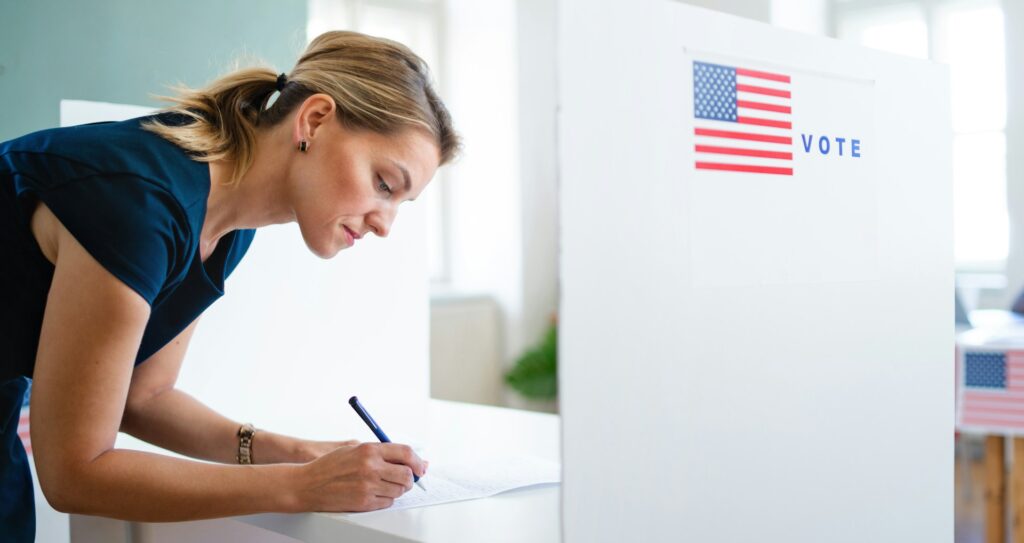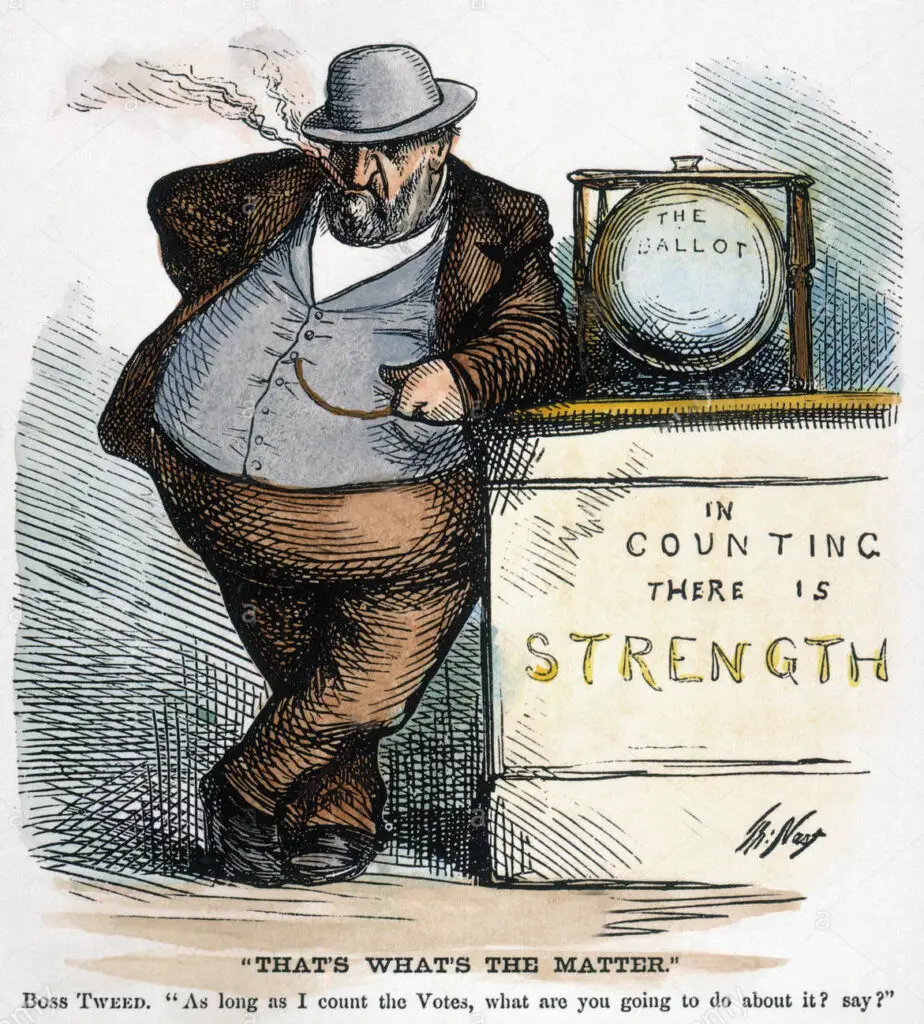Michigan Secretary of State Jocelyn Benson raises alarm over the SAVE Act, warning it could restrict women’s voting rights and alter U.S. elections.
The SAVE Act: What It Means for Michigan Voters
In a newly released video, Michigan Secretary of State Jocelyn Benson warns residents about the Secure and Verifiable Elections (SAVE) Act (HR 22), a federal bill she says could block millions of eligible voters from casting their ballots. The bill, backed by Republican lawmakers, is expected to move quickly through Congress in the coming weeks.
“The SAVE Act masquerades as a reasonable election security bill,” Benson said. “But its real goal is to dismantle American elections by restricting access to the ballot box.”
Trump’s Influence and the Push for the SAVE Act
Benson highlights Donald Trump’s past statements as evidence that his allies are working to undermine future elections. In the video, she recalls Trump’s campaign remarks where he suggested that after one more election, people wouldn’t need to vote anymore.
“If the president’s actions have taught us anything, it’s that we should take his words at face value,” Benson stated. “He doesn’t make jokes—he floats trial balloons.”
She argues that the SAVE Act is one of those trial balloons, designed to make voting harder for millions of Americans while giving politicians more power over elections.
How The SAVE Act Could Impact a Woman’s Voting Rights

The SAVE Act (HR 22) could significantly impact women’s voting rights by imposing stricter voter registration requirements, including proof of U.S. citizenship through a birth certificate or passport. This requirement poses challenges for married women, divorced women, and domestic violence survivors who may have changed their names, leading to mismatches between legal documents. Furthermore, the cost of obtaining these documents—ranging from $15 to $200—could disproportionately affect low-income women, rural women, and women of color, particularly Black and Latina voters, who are already underrepresented in passport ownership.
Beyond name changes, the SAVE Act could disenfranchise domestic violence survivors who may have legally changed their identities for safety reasons but lack easy access to documentation. Additionally, seniors born at home and tribal citizens may face difficulties acquiring the required paperwork. Civil rights organizations argue that these restrictions amount to voter suppression rather than election security, with Michigan’s Secretary of State Jocelyn Benson warning that it would make elections “less accessible and more burdensome”. With over 5.8 million Michigan adults lacking an updated passport, the SAVE Act could impose unnecessary obstacles to voting, disproportionately affecting women’s right to participate in democracy.
Secretary Benson’s Call to Action

Benson, a longtime advocate for secure and accessible elections, argues that the proposed legislation could lead to unnecessary barriers for legally registered voters. In her video message, she urges Michiganders to fight to protect their voting rights not just for the upcoming election but for all future elections.
“Voting is your power,” she said. “Let’s all fight to make sure we keep it.”
Michigan Lawmakers and Advocacy Groups Join Opposition
Benson’s warning follows a Feb. 27 news conference, where she stood alongside Michigan legislators and voting rights organizations to denounce the SAVE Act. Critics of the bill argue that it would place onerous identification requirements and new voter eligibility hurdles that disproportionately impact students, seniors, and minority communities.
During the event, officials stressed that Michigan’s current election system already has strong security measures in place to protect against fraud while ensuring access to the ballot for all eligible voters.
The SAVE Act’s Potential Impact on Voter Registration
Benson outlined how the SAVE Act would block millions of Americans from registering to vote by requiring in-person registration with a birth certificate or a U.S. passport. In Michigan, voters currently have multiple secure registration options, including using a driver’s license, state ID, military ID, or tribal documents—none of which would be sufficient under the SAVE Act.
“This bill is a trick,” Benson warned. “They are trying to take something we all agree on—that only U.S. citizens should vote—and use it to make it harder for millions of eligible citizens to cast their vote.”
Who Would Be Most Affected?
Benson argues that the bill disproportionately targets certain voter groups, including:
- Women who changed their last names through marriage (2.2 million in Michigan could be affected)
- Seniors born at home who lack official birth certificates
- Victims of house fires, tornadoes, or floods who lost critical documents
- College students who don’t have immediate access to their records
- Adopted individuals, both domestically and internationally
- Tribal citizens, low-income earners, rural residents, Black Michiganders, and active-duty military members
“This bill makes voting harder for all of these communities,” Benson said. “It makes government less efficient and more intrusive.”
The Debate Over Election Security vs. Voter Access
Supporters of the SAVE Act claim that the bill is designed to enhance election security, particularly in verifying voter eligibility. However, opponents argue it is a thinly veiled attempt to suppress voter turnout, particularly among groups that historically face difficulties in obtaining government-issued identification.
Michigan’s elections have been repeatedly affirmed as secure and transparent, with no evidence of widespread fraud. Election officials, including Benson, say federal intervention in the state’s voting process is unnecessary and harmful.
What’s Next for the SAVE Act?
The SAVE Act is expected to move through the U.S. House of Representatives soon, with lawmakers divided on its implications. While some states are pushing for stricter voting laws, Michigan officials remain firm in their stance that existing election security protocols are both effective and fair.
How Michiganders Can Stay Informed
Secretary Benson encourages residents to stay informed about their voting rights and push back against restrictive measures. For more information, voters can visit Michigan.gov/ElectionSecurity to learn more about election integrity and voter protections in the state.
Find More Interesting Feature Stories From ThumbWind
- Michigan Feature Stories – Unveiling the diverse and vibrant people, captivating places, and remarkable events that make Michigan unique.
- Weird Political News – A sarcastic take on official news, highlighting the quirks of politicians and policies.
- Michigan News – Local stories, impactful interviews, and updates shaping Michigan’s culture and lifestyle.
Your Turn – Like This, or Loath it – We Want To Hear From You
Please offer an insightful and thoughtful comment. We review each response. Follow us to have other feature stories fill up your email box, or check us out on ThumbWind Publications.
Sources & Further Reading:
- League of Women Voters (2024) – Voter Registration and Access in the U.S.
- Brennan Center for Justice (2023) – The Impact of Voter ID Laws on Women
- U.S.A Facts.Org (2024) – Passport Ownership Rates in the U.S.




